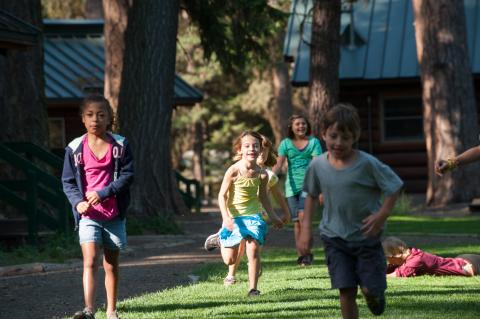Why Unstructured Play is important to early childhood development.
by: Hannah Stewart (MOSS Grad '20)
As a parent or educator we may often worry that we are not doing enough for our children or students, especially during the summer and currently during this global pandemic. However lots of recent research has found many benefits to unstructured outdoor play in early childhood development. In the book Importance of Play-Based Learning in Early Childhood L. Mead states “...play-based learning opportunities to help children become the best citizens they can be socially, emotional, cognitively, and physically..." (2017). Other sources list benefits of unstructured outdoor play as:
- Creativity and Imagination
- Motor and Social Skills
- Decision making and Problem solving skills
- Self confidence and Self regulation skills
- Conflict resolution
- Negotiation
- Resilience
- Teamwork skills
- Creative and critical thinking
So take a breath, sit down for a break and let your children create their own stories and adventures in your backyard or at the park. While you get to relax or catch up on work, rest easy knowing your children are practicing vital skills for their long-term development.
References:
https://www.brighthorizons.com/family-resources/free-unstructured-outdoor-play-kids
http://helpmegrowmn.org/HMG/HelpfulRes/Articles/WhyUnstructure/index.html
https://habyts.com/screen-time-limits-benefits-unstructured-play/
https://helpfulprofessor.com/unstructured-play-based-learning/
Dinkel, D., Snyder, K., Patterson, T., Warehime, S., Kuhn, M., & Wisneski, D. (2019). An exploration of infant and toddler unstructured outdoor play. European Early Childhood Education Research Journal, 27(2), 257-271.
Mead L. (2017) Importance of Play-Based Learning in Early Childhood. In: Geng G., Smith P., Black P. (eds) The Challenge of Teaching. Springer, Singapore
